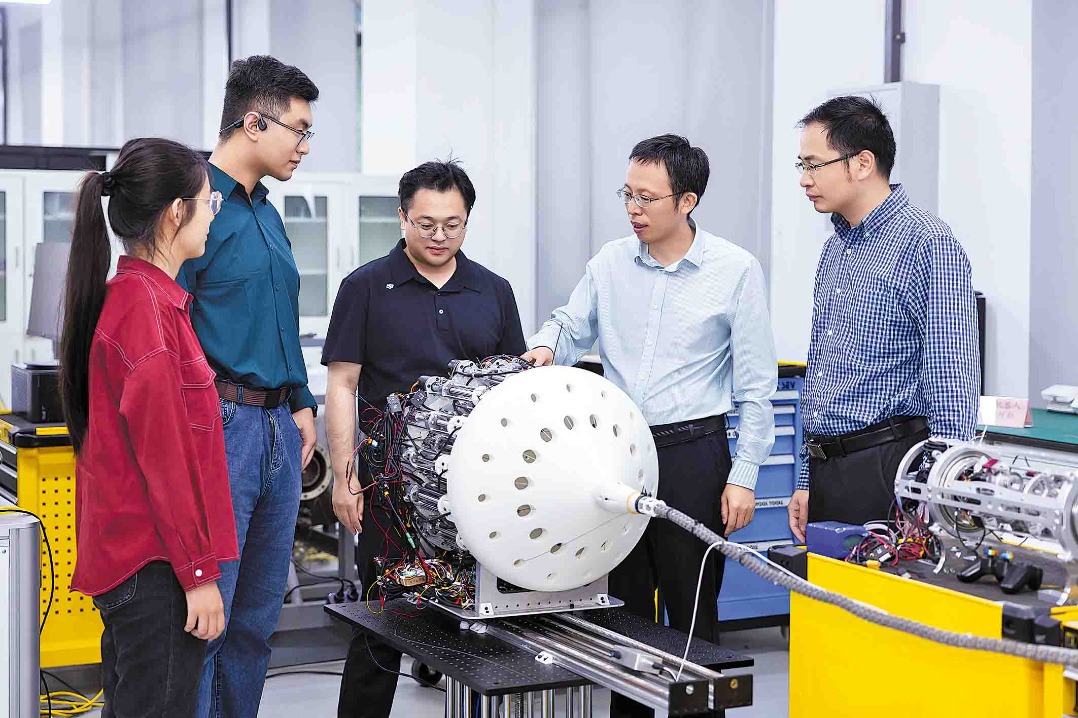Jurisdiction issue can no longer be glossed over

When the Information Office of the State Council three years ago released the message that "As a unitary state, China's central government has comprehensive jurisdiction over all local administrative regions, including the Hong Kong Special Administrative Region", the local authorities and media appeared reluctant to give much heed to it, opining that the phrases are just a "red herring" or "groundless".
Phrases with similar meaning were, however, stated again in the report by General Secretary Xi Jinping on behalf of the 18th Central Committee of the Communist Party of China, delivered at the 19th Party congress opening ceremony last week. The important statement can no longer be so ignored; it is time to grasp the connotation, extension and context wholly and correctly.
Political science classifies the structures of most nations into either unitary or federal; the distinction lies primarily in the power structure between central and local authorities. If the central come first and the local later, it is unitary and if the opposite then federal. If the powers of local authorities are derived from central government authorities, it is unitary; a federal nation is vice versa. By definition, it is popularly accepted that China is a unitary nation while the United States is a federal nation.

Therefore, the Information Office's assertion that the central government has comprehensive jurisdiction over all local administrative regions fits the context of "a unitary state" like China in general. But Xi, who is also China's president, considering the status of HKSAR in the specific context of "one country, two systems", gives more details in the report as follows:
Firstly, the central government authorities' powers of overall (comprehensive) jurisdiction (governance) toward the SAR shall not depend merely on China being a unitary state, but shall be conferred by and derived from the Constitution of the People's Republic of China and the Basic Law of the HKSAR. That is to say the powers exercised by the central government shall have a solid base from the said laws.
Secondly, central government authorities who can exercise powers over the region are not restricted to the State Council, but also include the National People's Congress (NPC), NPC Standing Committee (NPCSC), president of the PRC, and Central Military Committee. Narrowly speaking, the central government may refer to the State Council only; but broadly speaking, it may refer to the said five central authorities with different powers and functions as provided in the Constitution. By virtue of the "one country, two systems" principle, the Supreme People's Court and the Supreme People's Procuratorate may not exercise power over the SAR.
Thirdly, when central government authorities exercise powers over the SAR, attention should be paid to safeguarding the high degree of autonomy as provided in the Basic law. For instance, pursuant to Article 45(1) of the Basic Law, the chief executive shall be appointed by the central government. This appointment power is real but it cannot be exercised without prior selection by election or through consultation held locally as expressed in the same provision. But even concerning the matters of a high degree of autonomy, central government authorities may have a supervisory role to play, as given in Article 17(3) of the Basic Law, which stipulates that the NPCSC has the power to return certain legislations enacted by the legislature of the SAR; and as given in Article 48(3), which requires the chief executive to submit the budget and final account to the central government for record.
Fourthly, any power to be exercised by central authorities and local authorities shall be exercised in ways to uphold unwaveringly the full and faithful implementation of "one country, two systems" and the Basic Law; and to avoid bending and distortion to the principle and spirit of the Basic Law. In rectifying bending and distortion of Article 104 of the Basic Law regarding the qualifications for standing for election, taking up public office as well as in taking the oath, the NPCSC interpreted this article last November.
All provisions of the Basic Law are subject to two kinds of classification: dichotomy or triplex. The former classified provisions into two categories: the matters to be handled by central authorities such as diplomacy and defense, and the matters of regional autonomy like preparing budget and tax rules. The latter adds, besides the said two categories, another category - the relations between central authorities and the SAR.
In accordance with Article 17, 18 and 158 of the Basic Law, the category of relations between the central authorities and SAR cannot be ignored. The legal position of the SAR (Article 12), listing of national laws into Annex III of the Basic Law and their implementation (Article 18 and Annex III), political development toward ultimate aim of universal suffrage (Article 48, 68 and Annex I, II), selection of the chief executive of the HKSAR (Article 148 and Annex I), and interpretation of the Basic Law (Article 158) all belong to this category. The involvement of central government authorities is deeper in these provisions than those for autonomy.
One can hardly fully understand Xi's messages about central government authorities' jurisdiction over the HKSAR without keeping these articles of the Basic Law in mind.
| A fl ag-raising ceremony is held at Golden Bauhinia Square to celebrate the 20th anniversary of Hong Kong’s return to the motherland on July 1.Wu Xiaoling / Xinhua |
(HK Edition 10/25/2017 page10)
Today's Top News
- Consumption set to continue robust growth
- Li's visit to Rio to strengthen BRICS links
- Indian pilgrimages to Xizang resume after hiatus
- Lai's shameless display of hubris at cost of well-being of island's residents
- End of USAID doesn't end overt weaponizing of US aid
- Xi urges youth, students' federations to deepen reform, innovation for new achievements































